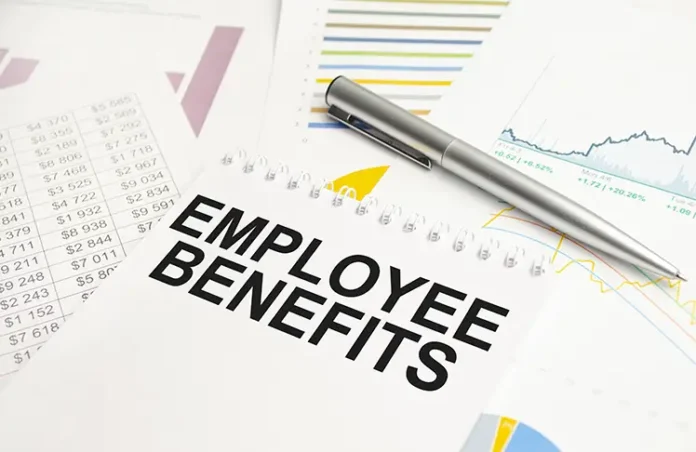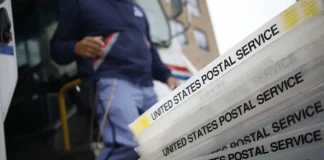Finances FYI Presented by JPMorgan Chase
The end of the year is approaching quickly, and it will be 2026 before you know it. Between holiday shopping and celebrations in your personal life and trying to wrap up projects at work, it’s easy to forget about one thing: your employer benefits.
These aren’t just nice extras — these benefits can help you save hundreds to thousands of dollars, reduce your tax bill, and set you up for financial success in the new year. Unfortunately, many employees don’t actually know what’s available to them or how to use it.
Here’s a quick guide to year-end (and sometimes year-round) perks you might be overlooking, along with tips on how to make the most of them before time runs out.
1. FSAs: Use It or Lose It
A Flexible Spending Account, or FSA, lets you put some money away pre-tax for medical expenses that might come up throughout the year. They’re limited to $3,300 per year, and you can use them to pay for things like your deductible, copayments, and prescriptions.
Unfortunately, most FSAs don’t roll over into the new year, so if you don’t use the money you’ve saved before year-end, it disappears. Some employers may offer a grace period, which is a short amount of time at the beginning of the new year that you can access your FSA, but it’s not guaranteed.
Action steps: Check your FSA balance now. If you still have funds, consider stocking up on eligible items, like glasses, contacts, or first-aid supplies.
2. HSAs: The Triple Tax Advantage
If you’re enrolled in a high-deductible health plan at work, a Health Savings Account, or HSA, is one of the best deals out there. This year, you’re able to contribute $4,300 if you have self-only coverage, and $8,550 if you have family coverage.
If you have a high-deductible health plan, an HSA is an excellent option because it gives you a triple tax break. All your contributions are tax-deductible, any growth in the account is tax-free, and qualified withdrawals are also tax-free. And unlike FSAs, your contributions roll over, even into retirement.
Action steps: If you haven’t maxed out your HSA, consider putting more money in before the end of the year.

3. Dependent Care FSAs: Childcare Savings
Have kids in daycare or after-school programs? Consider starting a Dependent Care FSA. If you’re married, you can contribute up to $5,000 a year, before taxes, to cover qualified dependent care services.
Action steps: Make sure you submit all your claims (with receipts) before the deadline so you don’t lose out on your reimbursement.
4. Commuter Benefits: Tax-Free Travel
Do you drive to work or take public transportation, like buses? Then, you may be eligible for certain commuter perks. For 2025, the IRS allows you to set aside $325 per month, tax-free, for travel or parking costs.
Why this matters: Every little bit you save adds up! Someone who’s in the 24% tax bracket who spends $200 per month on parking could potentially save $576 per year.
5. Retirement Accounts: Employer Match = Free Money
If your employer offers a 401(k) match, make sure you get the most out of your bi-weekly contributions. Unfortunately, if you don’t contribute enough to gain the fullest from the match your employer offers, it’s like walking away from “free” money. In 2025, you can contribute up to $23,500. Some employers also offer pensions and stock options, which can help you grow your long-term wealth.
Action step: Log into your retirement portal before the year ends and make sure you’re hitting the match threshold.
6. Open Enrollment: Time to Re-Evaluate
Most companies hold open enrollment in the fall. This is your chance to switch health plans, adjust your FSA and HSA contributions, or update insurance coverage. It’s also the perfect time to ensure your beneficiaries on life insurance and retirement accounts are up to date. Other than open enrollment, the only time you can change your contributions is if you experience a qualifying life event.
Action steps: Take 30 minutes to review your elections. A little extra attention now can prevent headaches later.
The Bottom Line
Employer perks aren’t just nice extras — they’re an important part of your total compensation. As 2025 comes to an end and you start looking to your future, take some time to evaluate your accounts, max out what you can, and make sure nothing slips through the cracks. Because at the end of the day, the best gift you can give yourself this season is money you didn’t even realize you had.
Finances FYI is presented by JPMorgan Chase. JPMorgan Chase is making a $30 billion commitment over the next five years to address some of the largest drivers of the racial wealth divide.
























